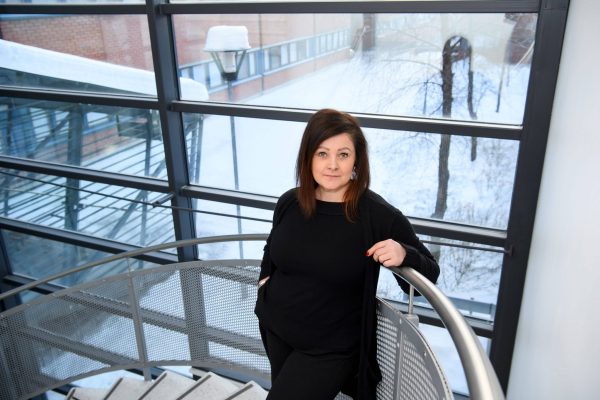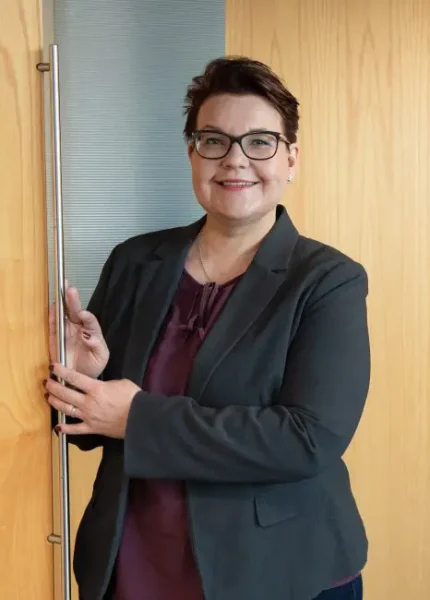R&D actors in spotlight – Kuopio Brain & Mind
Kuopio Brain & Mind – A multidisciplinary network for better brain health
Kuopio Brain & Mind serves as the regional network of Neurocenter Finland in Kuopio. Neurocenter Finland is a Finnish cooperation network for neuroscience and research that aims to bring together the academic, private and third-sector operators in neurosciences and promote better brain health in Finland. The aim of the Brain & Mind network, established by the University of Eastern Finland and Kuopio University Hospital, is to increase collaboration between the academic, hospital and corporate world and to promote the visibility of research in neuroscience carried out in Eastern Finland.
Both the University of Eastern Finland and biotech companies have unparalleled competence and competitive infrastructure in basic research in neurosciences. Clinical research in neuroscience and psychiatry is carried out at the Kuopio University Hospital (KUH), UEF Brain Research Unit as well as the central hospitals and primary healthcare in the Wellbeing Services County of North Savo. The region also has high-quality research in forensic psychiatry that is strongly connected to international networks.
Promoting translational research is a key goal
Kuopio Brain & Mind was established in 2021 as a part of Neurocenter Finland. The activities aim to support and promote high-quality research in neuroscience more broadly related to brain health, construct multidisciplinary cooperation and networks and serve as a link to the brain health networks, companies and other stakeholders in the region. The neurocenter network was established in response to a ministry-level report highlighting its necessity.
“We are carrying out and developing the regional Brain & Mind activities in cooperation with the regional units located in Helsinki, Oulu, Jyväskylä, Turku and Tampere. Kuopio is also home to the coordination unit of Neurocenter Finland, which serves as the national and international point of contact and facilitator of research activities in neurosciences and contributes to promoting innovation related to the diagnostics, treatment and rehabilitation of brain diseases”, explains Tarja Laitinen, Regional Manager, Kuopio Brain & Mind.
The activities of the regional Brain & Mind units are based on their areas of excellence. For instance, the focus of the Turku unit is on areas such as Master’s degree education in brain imaging, while the Jyväskylä unit emphasises cooperation between sport and health sciences and neuroscience. The local regions operate under the umbrella of Neurocenter Finland and pursue its greater vision and mission in line with their respective areas of excellence.
Kuopio Brain & Mind brings together the University of Eastern Finland (UEF), Wellbeing Services County of North Savo, Kuopio University Hospital as well as the neuroscience researchers employed by these organisations. The network also includes other ecosystem operators, such as Kuopio Health, companies and patient organisations. Kuopio Brain & Mind’s activities are guided by a steering group consisting of multidisciplinary experts from fields such as neuroscience, adolescent psychiatry, economics and legal science representing both basic and clinical research.

Tarja Laitinen, Regional Manager, Kuopio Brain & Mind
New solutions to complex challenges through collaboration
“One of the main goals of Kuopio Brain & Mind is to promote translational research, which seeks to increase cooperation between clinical and basic researchers. This enables applying the basic research carried out in laboratories in patient work, while the clinical findings benefit basic researchers. Translational research plays a crucial role in bridging the gap between basic research and clinical practice, turning findings into practical solutions that promote brain health”, continues Annakaisa Haapasalo, Chair of the Regional Steering Group and Professor at the A.I. Virtanen Institute, University of Eastern Finland.
“At the most practical level, integrating basic and clinical research could, for example, enhance early diagnostics or delay the onset of illness. This would be extremely important in contexts such as progressive memory disorders, which are often diagnosed late. Once effective drugs are hopefully discovered to treat these conditions in the future, it will enable us to refer the right patients to the appropriate medical treatments based on various biomarkers, for instance.”
The advanced knowledge of disease mechanisms will open up opportunities to develop new selective drugs with a direct impact on the disease process. This may result in slowing down or even halting the progress of the disease. It is key to consider together which research is relevant for reaching these objectives. The data obtained on patients is combined with the ability of basic researchers to investigate the genetic and cellular mechanisms of diseases. When this cooperation operates optimally, it provides the key to developing new biomarkers and drug treatments.
However, brain diseases are complicated, multi-factor conditions that involve challenges. For example, a neurodegenerative disorder is caused by more than one factor and must thus be examined comprehensively. This also serves as an explanation of why effective treatments do not yet exist for many of these conditions despite the ability to alleviate their symptoms.

Annakaisa Haapasalo, Chair of the Kuopio Brain & Mind Regional Steering Group, and Professor at the A.I. Virtanen Institute, University of Eastern Finland
Innovative projects and future solutions
Although each Brain & Mind region has its specific focus and area of excellence, the regions share the mission of achieving better brain health. The regions have also engaged in research cooperation, which includes the currently ongoing Pre-diagnostic early synaptic disturbances in neurodegenerative diseases (SynaDeg) project.
This project coordinated by the University of Eastern Finland sets out to advance the understanding of the disease mechanisms of neurogenerative diseases and to produce new biomarkers and tools for the challenging early diagnostics and treatment of these diseases. The Finnish partner involved in the project is the University of Oulu.
Moreover, the ERDF-funded UEF Brain Research Unit 2.0 process has been raking in success. The project has enabled the improvement of the unit’s operational framework and service concept and the development of its research infrastructure. The effective models created in the project will continue to provide valuable research for future studies. For example, patients may be called in for further examinations in cooperation with biobanks. A business-life-driven approach and regional cooperation lie at the core of the project. The project has also included companies that have participated in implementing the project and monitoring its progress,
A growing and developing network
Kuopio Brain & Mind aims to keep expanding its network. Networking enables it to reach new partners and build connections between researchers and companies. Building a network requires sustained communications and creating visibility. Bringing people together and developing new opportunities for cooperation plays an important role in this context.
”Kuopio Brain & Mind organises events around various themes and is involved in arranging various events and seminars. Participation in different events, growing the Kuopio Brain and Mind network and raising awareness of it through the events are among our key activities. Meeting people and enabling encounters between individuals are crucial for networking. Meeting and sharing experiences with representatives of the other regional Brain & Mind units is also valuable and insightful for everyone involved. Kuopio Brain & Mind wishes to continue its involvement in research projects supporting brain health and wants to keep building networks and support regional stakeholders.”
“We also hope we can attract companies to the collaboration; anyone interested can freely contact us. The collaboration fosters the development of solutions that directly affect the future and well-being of every one of us. We can also refer people to other parties if they have questions related to neuroscience and brain health with a single-point-of-contact approach”, Laitinen and Haapasalo conclude.
Inquiries:
Tarja Laitinen, Regional Manager, Kuopio Brain & Mind, tarja.laitinen(at)uef.fi
Annakaisa Haapasalo, Chair of the Kuopio Brain & Mind Regional Steering Group, Professor, A.I. Virtanen Institute, University of Eastern Finland, annakaisa.haapasalo(at)uef.fi
Kuopio Brain & Mind is a regional operator whose aim is to improve brain health through multidisciplinary research, cooperation and innovation. The aim of the Brain & Mind network, established by the University of Eastern Finland and Kuopio University Hospital, is to increase collaboration between the academic, hospital and corporate world and to promote the visibility of research in neuroscience carried out in Eastern Finland. Kuopio Brain & Mind serves as the regional network of Neurocenter Finland in Kuopio.